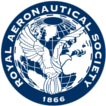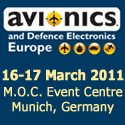Added on 21 February 2011 by gemma crabb
Autumn 2011 Flight Simulation Conference
CALL FOR PAPERS - The Contribution of Flight Simulation to Aviation Safety
Flight Simulation’s broad role in developing, maintaining and enhancing flight safety is well recognised, but have advances in simulation technology and capability been matched by corresponding improvements in the way we conduct training?
Today’s environment is one of increased cockpit automation, airspace congestion, ultra long haul operations, enhanced flight envelope protection and arguably reduced levels of actual manual flying experience in the new generation of flight crews. The levelling off of hitherto falling accident rates, and the changing balance of the causal factors behind them, illustrated by a number of recent highly publicised accidents and incidents, suggest that there are areas for improvement, and that we must continue to strive to further improve our safety record.
The Royal Aeronautical Society Flight Simulation Group has recognised this, and for the past 5 years has overseen several international, multi-disciplinary study groups. The latest one of these is the International Committee for Aviation Training in Extended Envelopes (ICATEE). Its objective is to look at all aspects of live and synthetic training for anticipating, recognising, avoiding, and recovering from unusual attitudes and flight situations, aircraft upset, and loss of control in flight. ICATEE will bring together the best practice in current education, flight instruction and training, updated by the latest research and a rigorous methodology.
Additionally, the IATA International Training and Qualification Initiative (ITQI) promises improvements in flight crew knowledge, skills and attitudes and hence safety through evidence-based competency training regimes. These have far reaching implications on the way flight crew training is conducted, from ab-initio through to type rating and recurrent training, including instructional methods and standards.
While both ICATEE and ITQI are framed around civil large aircraft training and safety requirements, they have the potential to influence military training regimes, which increasingly rely on simulation to maintain standards and mission readiness. At the other end of the spectrum, low cost FSTDs, and new digital interactive media integrated into educational and training simulations, are increasingly being used to address the comparatively poor safety record of General Aviation (GA), both fixed- and rotary-wing. In other aspects of simulator-based training, advances in technology and functionality offer other benefits which can be harnessed to address more specific safety issues.
The conference will principally examine how all these initiatives link together through the use of flight simulation. A significant part of the Conference will be dedicated to the detailed reporting of both the Technical and Training sub-groups of the ICATEE. The sessions will address the approach taken to analyse the training requirements and to develop the rationale for a suitable range of live and simulator-based education, training, and instructional courseware. The Technical subgroup will present its recommendations for data collection and validation in support of enhanced simulator modelling and cueing systems. Papers are also being invited from the IATA ITQI team.
This Royal Aeronautical Society Flight Simulation Conference also invites papers on other safety related issues, in addition to IATA ITQI and ICATEE, such as:
- Simulator technological improvements to meet the safety-driven training and instructional challenges
- Low cost simulation and its potential contribution to safety
- What does GA – fixed wing and helicopters - need from simulation?
- How can flight simulation make a significant reduction in rotary wing accident rates?
- Instructor Qualification and Accreditation
- Human Factors and the Psychological Aspects of Simulator-based training.
- The Live/Synthetic Balance
- Leveraging the next generation in the gaming industry to enhance mission rehearsal training
- New Electronic and Distributed Media, such as games, Social Networks, and the iPad, and their implications for Training and Safety
The dealine for received abstracts is Thursday 21st Apri 2011.
Kindly sponsored by:
Kindly supported by:
Do you know somebody that this event would appeal to? Share it on your favourite services below
Tags: Aviation Safety, civil arena, conferences, Flight Operations, Flight Simulation, group conferences, IATA, ICATEE, ITQI, raes, royal aeronautical society, safety analyses, simulation group
Added on 17 February 2011 by Emma Bossom
The Sopwith lecture was established in 1990 to honour Sir Thomas Sopwith CBE, Hon FRAeS. In the years prior to World War I, Sopwith became England’s premier aviator and established the first authoritative test pilot school in the world, he also founded England’s first major flight school. Between 1912 and 1920 Sopwith’s Company produced over 16,000 aircraft of 60 types.
Tags: aerospace community, aviation, Boeing Commercial Airplanes, Boring, event, free event, Jim Albaugh, lecture, named lecture, raes, royal aeronautical society, Sopwith
Added on 15 February 2011 by Emma Bossom
An International Approach to Flight Crew Training Standards
The Annual RAeS International Flight Crew Training Conference is well established and highly successful. The 2011 Conference aims to seek solutions on how best to consider flight crew training standards from an international perspective.
Tags: airspace management, Andrew Haines, best practice, CAA, EASA, FAA, fixed wing, Global Professional Certificate, Human Factors, IATA, ICAO, ICATEE, international flight crew training, ITQI, Jules Kneepkins, rotary wing, training, training standards, training standards harmonisation
Added on 15 February 2011 by Royal Aeronautical Society
Please note: Attendance at Corporate Partner Briefings is exclusive to RAeS Corporate Partners.
UK MILITARY AIR SAFETY - THE VISION FOR 2013
Air Marshal ‘Timo’ Anderson, Director General, Military Aviation Authority
Tags: aerospace community, aerospace industry, aviation, aviation industry, qinetiq, restructure, royal aeronautical society, society events
Added on 14 February 2011 by gemma crabb
The Blades Aerobatic Team and 2Excel Aviation
The Blades Aerobatic Team formed in 2006, and since then has displayed to over 18 million people and flown over 3000 corporate passengers on formation aerobatic flights. Operating as the UK’s only full-time civilian aerobatic team and the World’s only globally accredited aerobatic airline, Myles will explain the significance and importance of this.
Myles Garland will talk about training, how the team design and incorporate new manoeuvres into the display, and how The Blades approached their first display season in a high- performance propeller aircraft having flown thousands of hours in fast jets.
The Blades parent company, 2Excel Aviation has expanded rapidly since 2006 and now delivers a wide range of aviation based products. From ‘Unforgettable Events’ such as a 300 person Summer Ball, to trials and test flying in their 2 PA31 Navajo aircraft, to operating several luxurious Beech King Air 200s for their clients, 2Excel is an extremely agile company and Myles will discuss how these capabilities all come together to make 2Excel and The Blades truly unique.
About the speaker
Sqn Ldr (Ret) Myles Garland
Blade 1 and Team Leader of The Blades Aerobatic Team
Myles Garland was born in Vancouver in 1971. Educated at St. Boniface’s College, Devon, Myles developed his keen interest in aviation and was subsequently awarded a Royal Air Force Flying Scholarship. He joined the RAF immediately after completing his A-levels. After flying training on both the Jet Provost and the Hawk, Myles’ operational career began on the Harrier GR7. He was posted to No1 (Fighter) Squadron based at RAF Wittering and took part in exercises all over the world. In 1997 he embarked with the Squadron onto HMS Illustrious for the first Harrier GR7 deployment to an Aircraft carrier. Shortly after, having proven the concept, the Squadron were deployed to the Gulf onboard HMS Invincible during Operation SOUTHERN WATCH.
In 1999, as a Qualified Weapons Instructor on the Harrier, Myles took part in operations over Kosovo and the former Yugoslavia where he was ‘Mentioned in Dispatches’ for gallantry. On completion of his first operational tour, Myles was posted to instructional duties 20 (Reserve) Squadron teaching ab-initio and post graduate Harrier Pilots the art of weaponeering and tactics.
In 2000, Myles was successful in applying to the Royal Air Force Aerobatic Team and flew with the Red Arrows for the 2001-2003 display seasons. During his time with the Reds, Myles was promoted to Squadron Leader aged 29 and chosen to fly as part of the famous ‘Syncho Pair’.
On leaving the Red Arrows Myles returned to operational front-line duties on the Harrier as a flight commander then Deputy Squadron Commander on No 3 (Fighter) Squadron based at RAF Cottesmore.
In 2005 as 3(F) Squadron disbanded as a Harrier Squadron before immediately re-forming as a Typhoon Squadron, Myles left the RAF with over 3000 fast jet flying hours and became one of the founding members of The Blades.
This will be Myles’ sixth year with The Blades and his third year as Blade 1. During his time with The Blades he has flown in a number of positions including 2 years as Blade 4 developing, inventing and performing the dynamic solo manoeuvres.
This RAeS General Aviation Group Evening Lecture is organised and held in partnership with The Guild of Air Pilots & Air Navigators (GAPAN).
Refreshments will be served from 17.30hrs and the lecture will commence at 18.00hrs.
Please RSVP to the Conference & Events Department at [email protected]
Tags: 2Excel Aviation, accredited aerobatic airline, aerobatic flights, air displays, gapan, General Aviation Group, Guild of Air Pilots & Air Navigators, Myles Garland, propeller aircraft
Added on 10 February 2011 by Royal Aeronautical Society
ARA and Aerodynamic Technology: Acknowledge the Past, Look to the Future
The 2011 Handley Page Lecture is organised jointly by the Royal Aeronautical Society and Cranfield College of Aeronautics Alumni Association and will be given by Dougie Hunter of the ARA.
Tags: aeronautics, Aerospace, aerospace aviation, aircraft research association, ARA, cranfield alumni, cranfield university, Dougie Hunter, Handley Page, Lectures
Added on 07 February 2011 by gemma crabb
Development of the Zephyr HALE UAV – holder of the Absolute World Record for Duration
The Stratosphere offers a new domain to provide services across whole countries and across the world, without the intermittent coverage or high infrastructure or operational/launch costs of other systems. However, we have only briefly occupied the Stratosphere –until now.
The QinetiQ Zephyr is the first to demonstrate that Solar aircraft are capable of “eternal” flight in the stratosphere with real payloads, and is the world’s longest flying aeroplane without refuelling- a 14 day first flight at altitudes up to more than 70,000ft in July 2010.
The lecture will describe how the Zephyr programme has progressed towards a truly high altitude, longer duration, operationally capable platform combining all-new, efficient technology- and how Zephyr has successfully introduced the new technology in a comprehensive ground and flight test programme.
Eternal solar platforms offer many potential applications –those currently carried out by satellites and aircraft (such as communications, earth observation, atmospheric sampling) – better and cheaper, and new applications which are not currently possible or affordable by other means.
About the speaker
Chris Kelleher is the QinetiQ Technical Director for High Altitude, Long Endurance (HALE) systems and Flight operations Manager of Zephyr, the world’s first “eternal” aircraft. He has 30 years experience of aircraft and spacecraft design and operation at QinetiQ Farnborough. He is married with 4 children, and flies light aircraft as a hobby and occasional air displays, being a three times former winner of the British Aerobatics Association Advanced Level.
Refreshments will be served from 17.30hrs and the lecture will commence at 18.00hrs.
Please RSVP to the Conference & Events Department at [email protected]
Tags: Chris Kelleher, Flight Test Group, HALE, High Altitude, qinetiq, Solar Powered, UAV, zephyr





